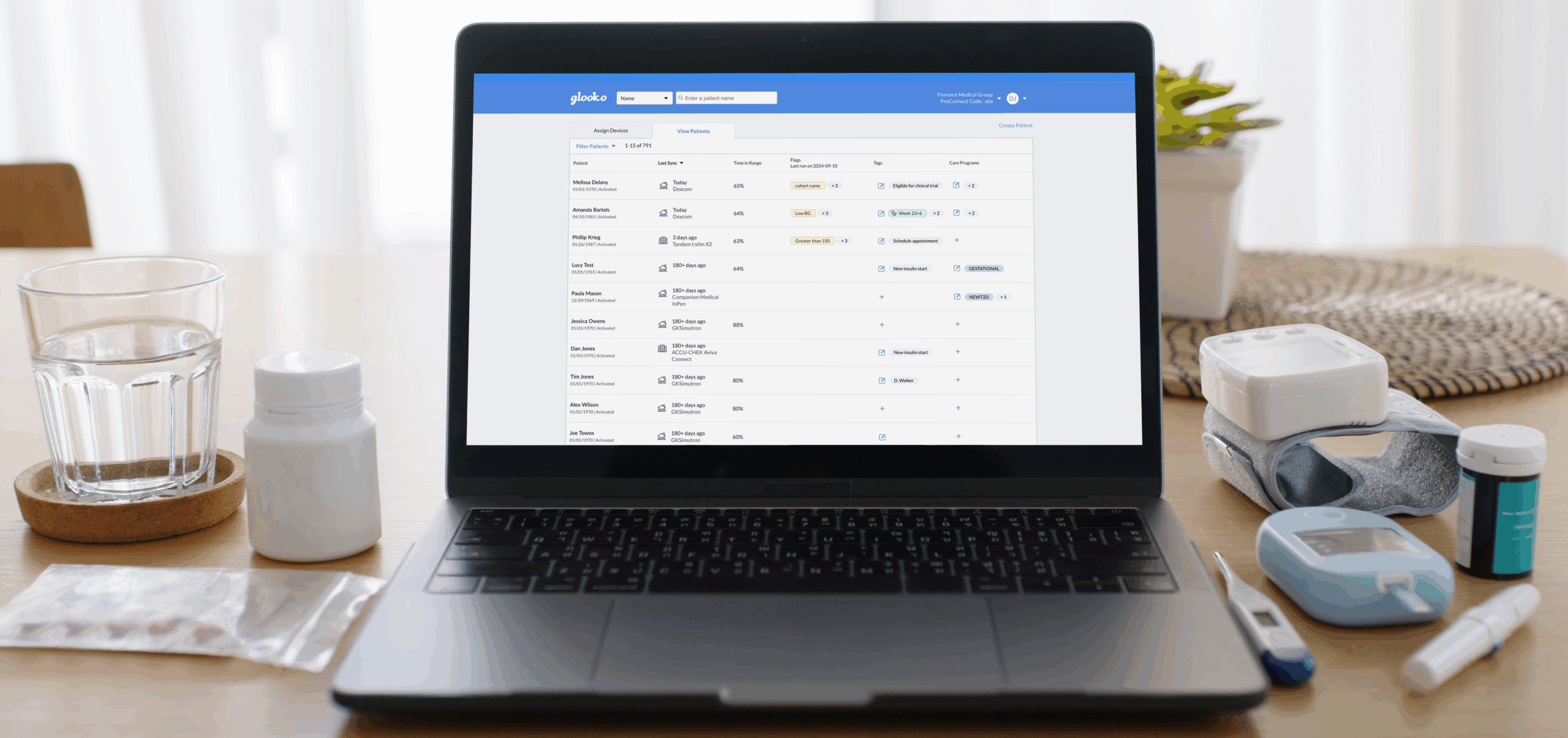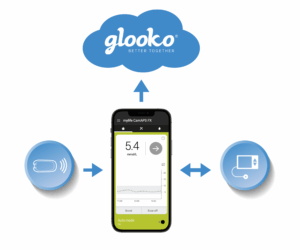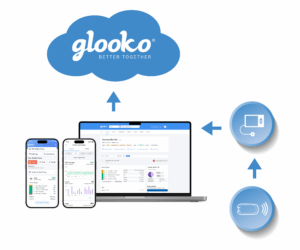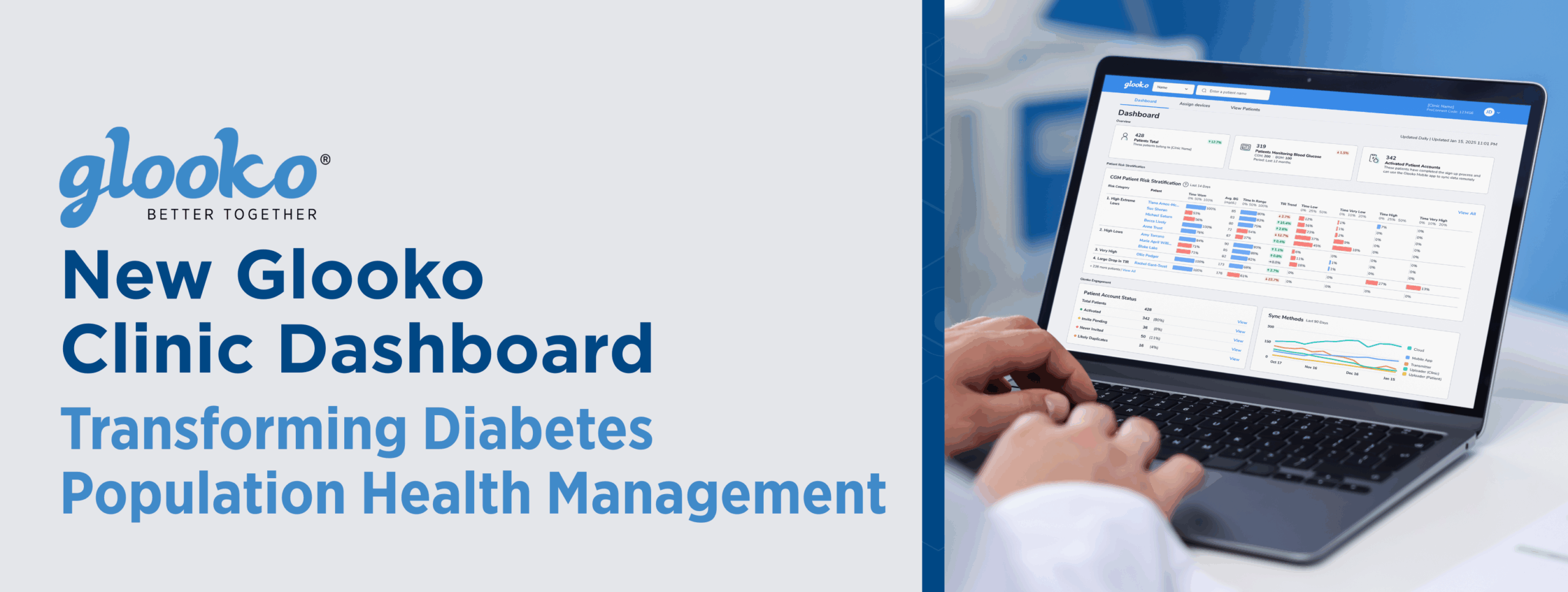
Healthcare providers struggle to manage large diabetes populations without a comprehensive view of patient data.
During this webinar, Glooko Chief Medical and Strategy Officer Mark Clements, MD, PhD, and Glooko Senior Clinical Transformation Director Trisha Martinez, BSN, MBA, RN, explore the new Glooko clinic dashboard, a powerful tool designed to streamline diabetes population health management and enable smarter care across hospitals, health systems, and clinics.
Our clinical experts take a deep dive into this user-friendly dashboard, available in select countries, and showcase its at-a-glance insights into patient trends and key clinic metrics that can help care teams easily interpret complex data for more efficient decision-making.
Ready to optimize diabetes population health management?
Contact Team Glooko for a demo of our new clinic dashboard, which helps healthcare teams manage large diabetes populations more effectively by prioritizing care and boosting patient engagement.
MKT-0468
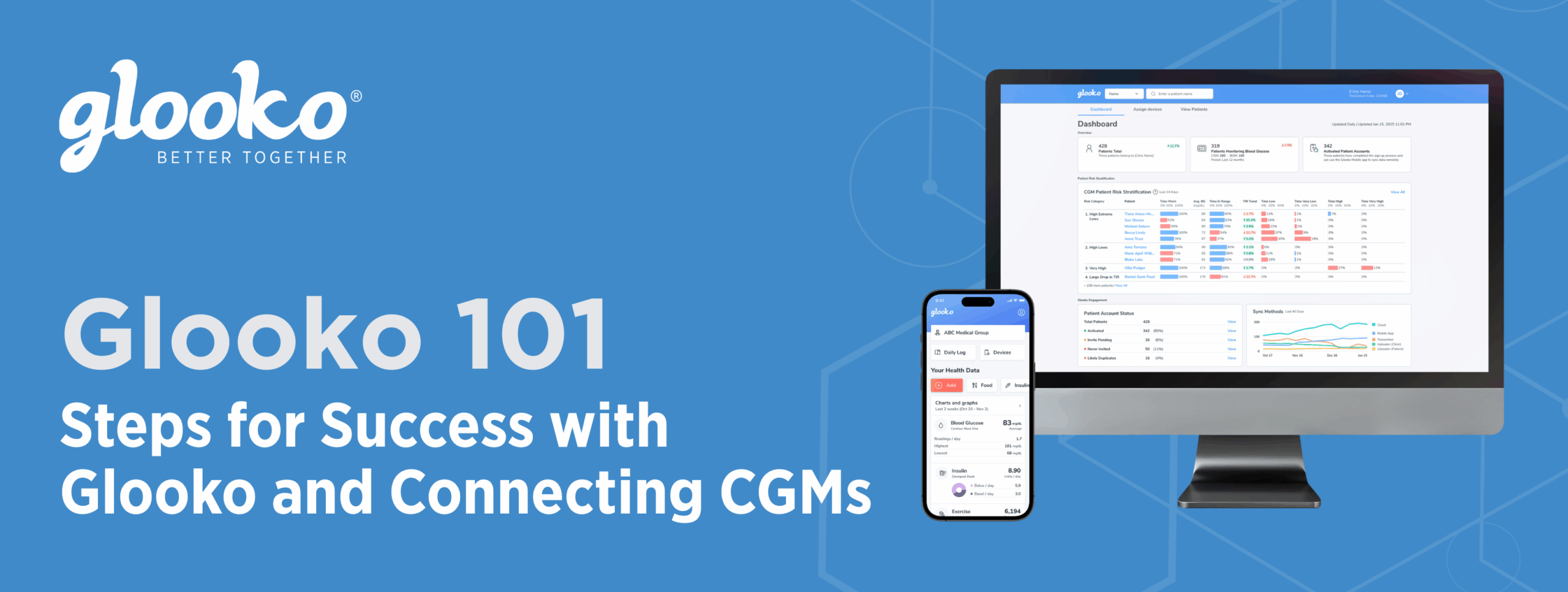
During this Glooko 101 webinar, Glooko Senior Director of Clinical Transformation Trisha Martinez, BSN, MBA, RN, helps healthcare providers, including endocrinologists, nurses, and certified diabetes care and education specialists, get the most out of their professional Glooko account, reviewing core features and tools that support clinical workflows for both new users and those looking for a refresher.
This session also covers best practices for onboarding patients with diabetes using continuous glucose monitors (CGMs), including how to connect CGM data to Glooko to ensure seamless access to glucose trends and actionable insights from day one.
Time to Optimize your Diabetes Practice
Book a one-on-one session with Team Glooko today to better understand how to optimize Glooko from the start, get customized guidance on connecting CGM data, and gain access to actionable glucose trends care teams need.
MKT-0473
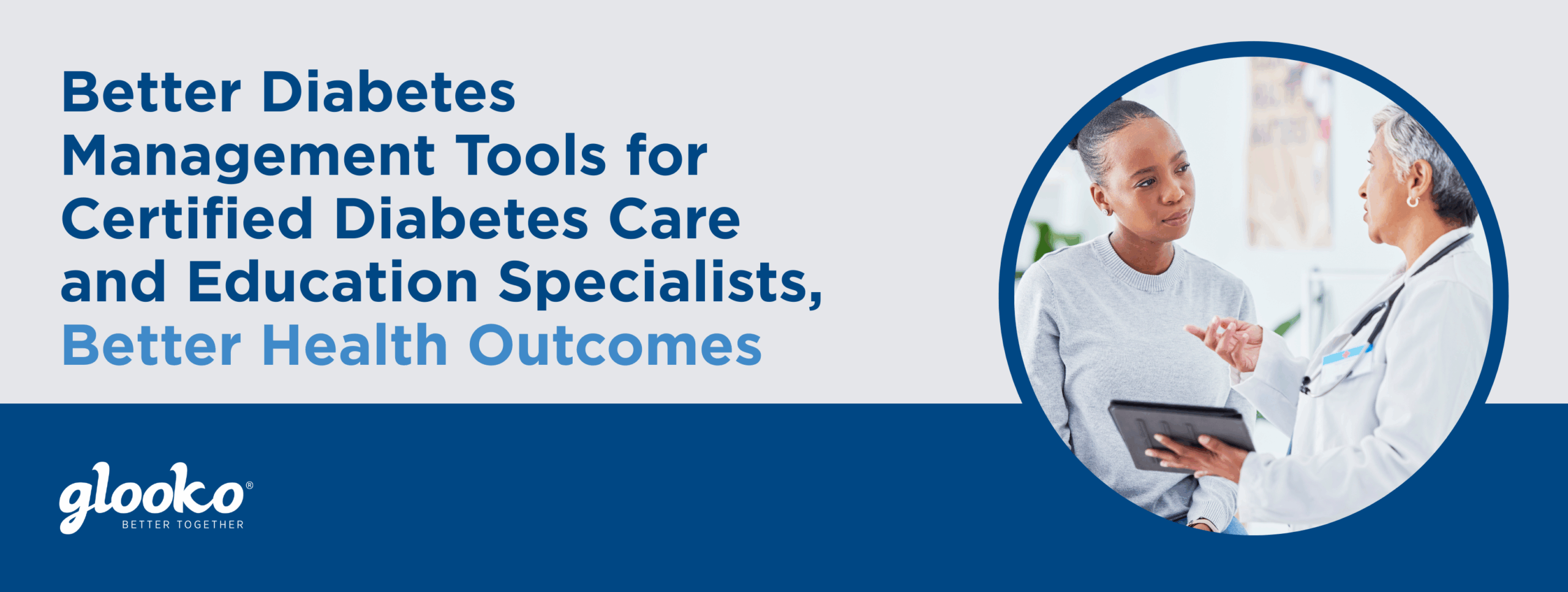
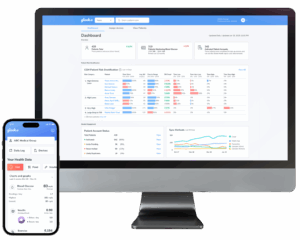 The role of certified diabetes care and education specialists (CDCESs) is vital in helping people with diabetes manage their condition, achieve optimal health outcomes, and thrive.
The role of certified diabetes care and education specialists (CDCESs) is vital in helping people with diabetes manage their condition, achieve optimal health outcomes, and thrive.
Glooko’s innovative web platform and mobile app is designed to make diabetes care and education more efficient, data-driven, and impactful for these critical care team members.
By providing cutting-edge capabilities, Glooko empowers CDCESs at hospitals, health systems, and clinics to support patients’ diabetes management, reduce the risk of complications, and improve health outcomes.
Advantages of CDCESs Leveraging Glooko
Glooko offers a range of features in its platform that streamlines clinical workflows, enhances the decision-making for CDCES professionals and the entire diabetes care team, and ultimately, supports better diabetes management and care:
- Expansive Device Compatibility: Glooko seamlessly integrates with over 200 diabetes and health monitoring devices and apps, centralizing relevant health data and making it easily accessible.
- Clinic Dashboard for Diabetes Population Health Management: Our new clinic dashboard, available in select countries, provides CDCESs with at-a-glance insights of a clinic’s diabetes patient population, leading to more efficient, data-driven decisions.
- Seamless EHR Integrations: Our integrations with leading electronic health records (EHRs), including Epic, Oracle Health, MEDITECH, Greenway Health, eClinicalWorks, NextGen, and Athenahealth, securely centralizes diabetes and related health data, giving CDCESs a complete view of a patient’s health in one place and eliminating the hassle of platform switching and multiple logins.
- Educational Digital Care Programs: Glooko’s care programs complement the work of the CDCES by providing patients with structured education that advances their understanding of diabetes management.
- Easier Log-in with SSO: Single Sign-On (SSO) eliminates the need for multiple logins and passwords, cutting credential hassle so CDCESs can focus more time on delivering high-quality patient care.
- Exceptional Customer Support: Backed by rapid response times, an extensive help center, and U.S.-based support, CDCESs can spend less time troubleshooting technical issues and more time focused on their patients.

Glooko Advances the ADCES7 Self-Care Behaviors®
Diabetes Self-Management Education and Support (DSMES) is a program from the Association of Diabetes Care and Education Specialists (ADCES) designed to empower individuals with diabetes to manage their condition effectively. It’s structured around the ADCES7 Self-Care Behaviors, which represent seven critical areas of diabetes self-management.
CDCES professionals partner with patients with diabetes to help prioritize and improve their own management skills across these seven essential behaviors. CDCESs can leverage the Glooko Mobile App, which supports patients in tracking and managing each of these behaviors, to complement their own education and guidance:
- Healthy Eating: People living with diabetes can enter food into the Glooko Mobile App to better understand how nutrition affects their condition and well-being.
- Being Active: The app allows tracking of steps, fitness, and other exercises, helping users understand the impact of physical activity on their overall health and glycemic control.
- Taking Medication: Patients can track medication, set reminders, and enter notes about the impact of medications, which can be shared with care teams.
- Reducing Risk: Through its manual entry feature and compatibility with smart scales and blood pressure cuffs, the Glooko Mobile App can be used to monitor trends in weight and blood pressure.
- Problem Solving: The app helps users identify patterns in everything from nutrition and weight to insulin and glucose levels and solve challenges independently or through remote collaboration with their car team.
- Healthy Coping: People with diabetes can record notes in the Glooko Mobile App about their feelings, beliefs, challenges, and successes while managing their diabetes.
Users of the Glooko Mobile App also can access our comprehensive support center for troubleshooting and helpful tips, allowing them to make the most of the app’s features.
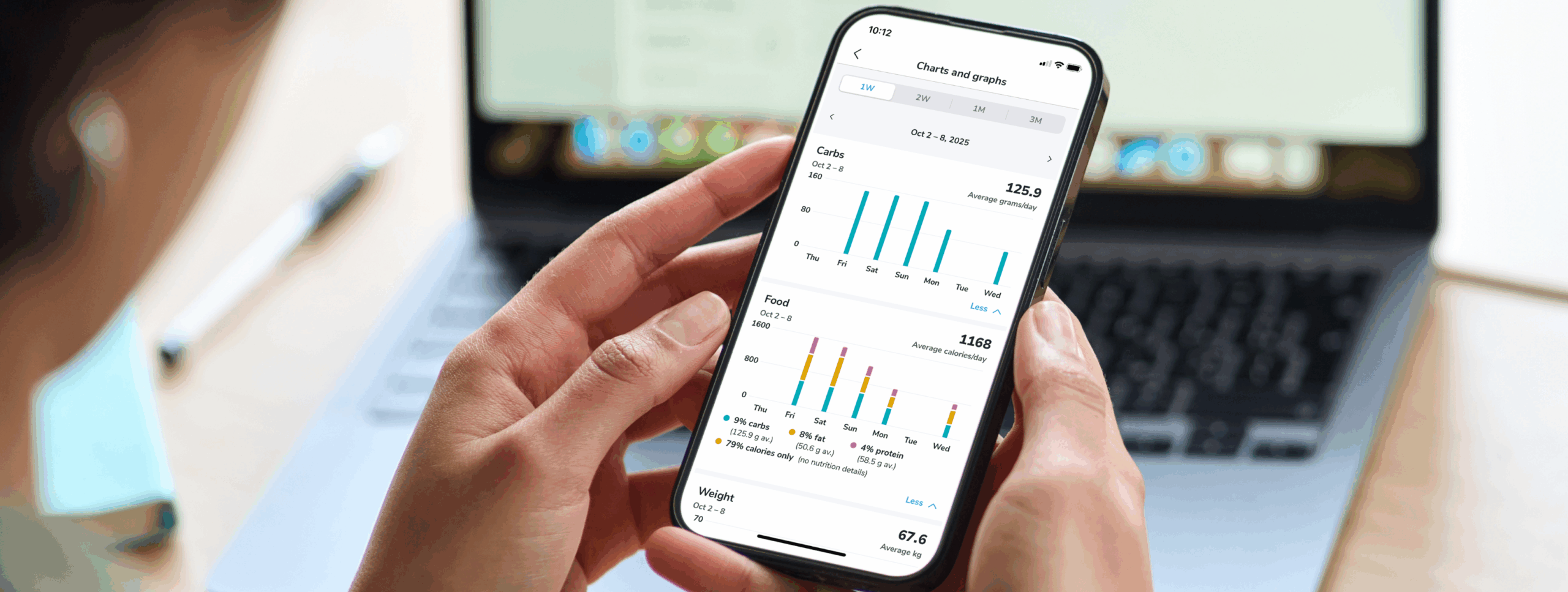
Enhance the CDCES-Patient Experience with Glooko
At Glooko, we provide CDCES professionals with digital health tools for simpler diabetes management and better health outcomes for their patients.
Find out how Glooko’s diabetes management software can support your care team’s delivery of data-driven, high-quality care by scheduling a demo.
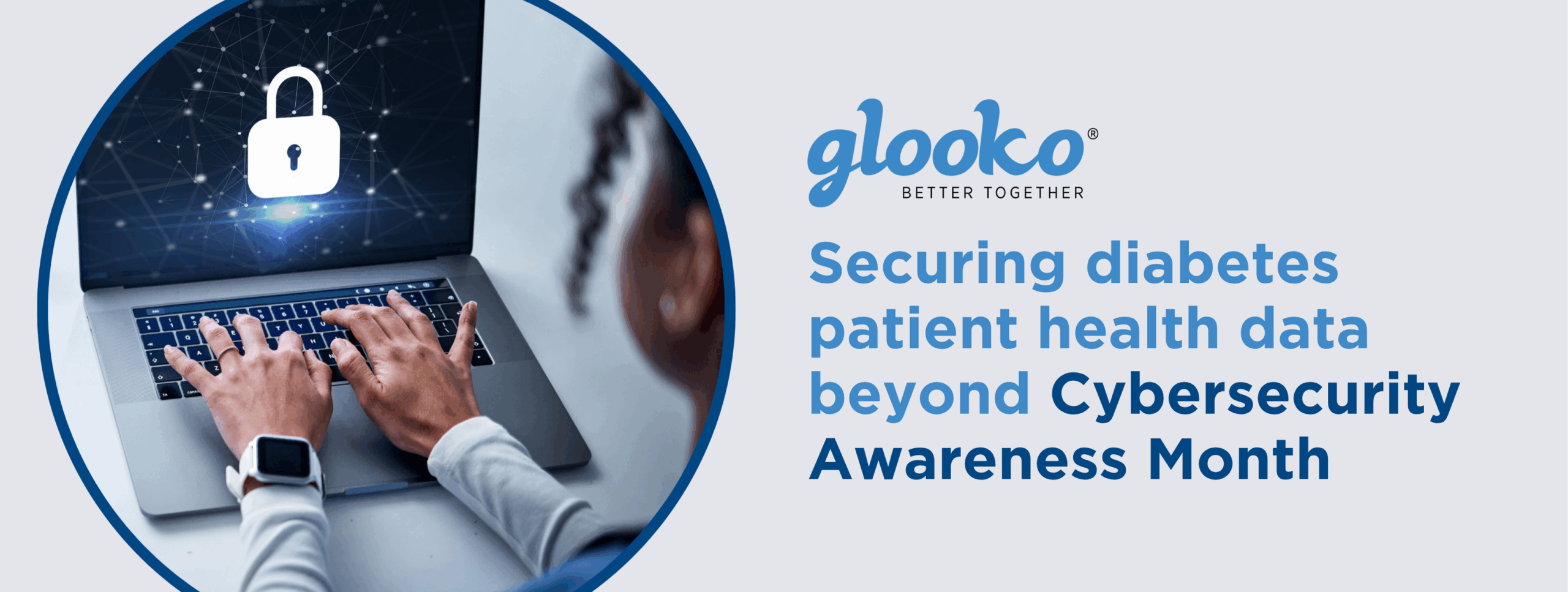
 October is Cybersecurity Awareness Month, but for Glooko, the only diabetes management company with multiple industry-leading security certifications, our commitment to protecting patient health data is a year-round mission.
October is Cybersecurity Awareness Month, but for Glooko, the only diabetes management company with multiple industry-leading security certifications, our commitment to protecting patient health data is a year-round mission.
According to Glooko CEO Mike Alvarez, one of our diabetes management company’s core differentiators is our commitment to patient safety and data privacy, which enables us to build and maintain trust with hospitals, health systems, clinics, and people living with diabetes.
As the healthcare industry faces rising cyberattacks, Glooko understands that securing health data and ensuring the security and privacy of this sensitive information is not just a policy — it’s a core responsibility.
Building a Foundation of Trust Through Security Certifications
Security isn’t a single feature you can switch on; it’s a comprehensive framework built on continuous commitment, sophisticated technology, and rigorous auditing.
As the most secure diabetes management platform, Glooko has invested heavily in achieving and maintaining a number of rigorous global security certifications and standards, which serve as a powerful testament to the maturity and diligence of our security practices that safeguard the sensitive personal and health data of our users with diabetes.
Here are the key standards and certifications that build Glooko’s security backbone:
- ISO 27001: This globally recognized information security management standard outlines requirements for an information security management system (ISMS). Achieving this certification means an organization has a systematic approach to managing sensitive company and customer information.
- SOC 2 Type II and SOC 3 Certification: These internationally recognized global reporting standards, validated by an auditing firm, verify that Glooko’s controls across its employees, systems, and processes fully secure all customer data, software, and company assets.
- HITRUST Risk-based, 2-year (r2) Certification: Achieving this healthcare industry gold standard confirms our stringent, independently-audited security controls meet the highest requirements of frameworks like HIPAA and NIST. This places us in an elite group dedicated to protecting sensitive patient health data. Explore our recent study on strengthening our cyber resilience…
- HIPAA Compliance: This U.S. federal law ensures the protection of sensitive patient health information from being disclosed without the patient’s consent or knowledge.
- The NHS Digital Data Security and Protection Toolkit (DSPT): For operations in the U.K., this framework ensures that patient data is handled securely and in a way that respects privacy.
- GDPR: This comprehensive European Union law gives individuals control over their personal data by setting strict rules for how organizations worldwide must collect, process, and protect that information.

How Diabetes Patient Health Data is Protected on a Day-to-Day Basis
Beyond the certifications, hundreds of controls are implemented to ensure data remains secure at Glooko. Our approach, covering protection, defense, response, and recovery, includes:
- Continuous Vulnerability Management: Regular penetration testing and vulnerability scans are conducted to proactively identify and address potential weaknesses in their systems.
- Internal Governance: A dedicated governance board oversees our diabetes management company’s policies, ensuring that security and privacy are considered in all decisions.
- Employee Training: A core element of any security strategy is the people. Team Glooko receives regular, mandatory training on data security and privacy protocols.
- Privileged Access Management: Policies are in place to ensure that only authorized personnel have access to sensitive information.
- Secure Software Development Lifestyle (SSDLC): Security code reviews, threat modeling, and static and dynamic code scans are completed during the software development lifecycle
Your Data, Your Control
A crucial part of data privacy is the user’s right to control their information. We make it clear that personally identifiable data is never shared without explicit consent. When using the platform through a healthcare provider, Glooko functions as a part of the healthcare provider’s operations, always adhering to the same stringent privacy standards.
Our Constant Commitment to Protecting Patient Safety
Cybersecurity Awareness Month is a great starting point, but data protection requires constant, evolving, and year-round efforts because threats are always changing.
Through a combination of robust technical controls, a culture of security, and adherence to global standards, Glooko’s commitment to trust and privacy is a fundamental part of our connected care company beyond October.

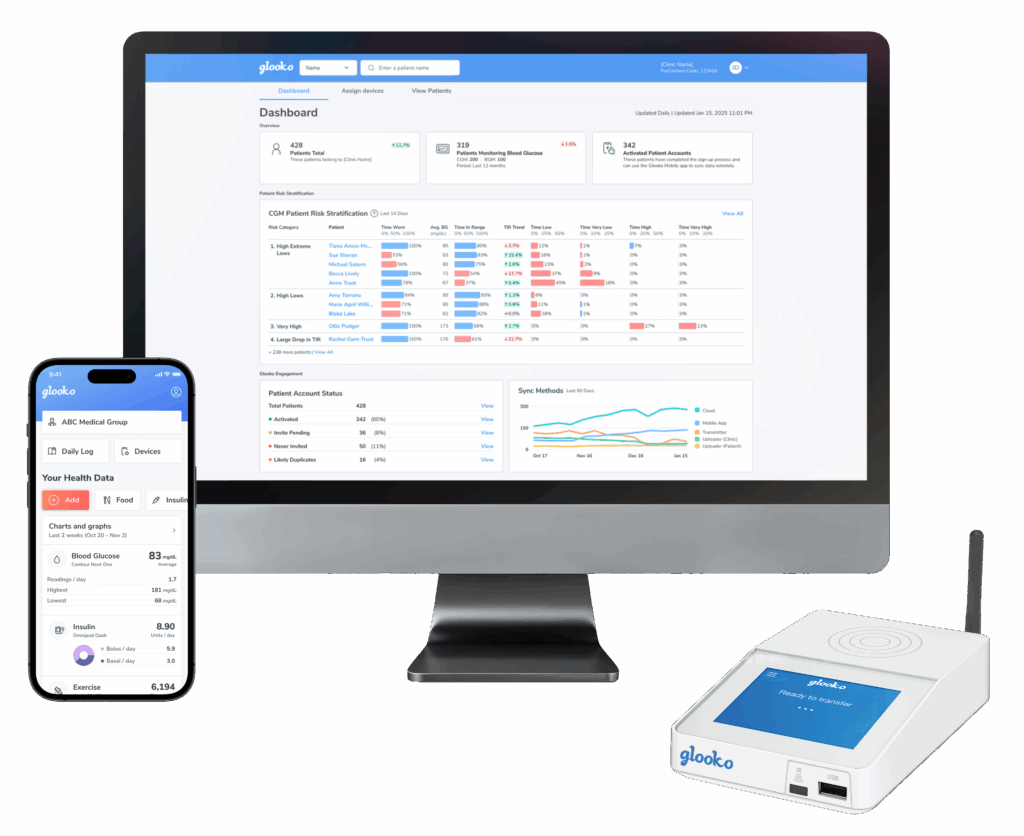 When healthcare professionals manage a large population of patients with diabetes, they often lack a clear, organized, and comprehensive view of patients’ pertinent health data.
When healthcare professionals manage a large population of patients with diabetes, they often lack a clear, organized, and comprehensive view of patients’ pertinent health data.
To help address this challenge, we designed the new clinic dashboard in the Glooko diabetes management platform. Available in select countries, the dashboard helps healthcare providers, including primary care providers, endocrinologists, and nurses, at hospitals, health systems, and clinics streamline their diabetes population health management.
Developed for busy healthcare professionals, the new Glooko clinic dashboard is based on TIDE (Timely Interventions for Diabetes Excellence) metrics to help address the challenge of managing a large diabetes patient population. This user-friendly view provides at-a-glance insights into patient population trends and key clinic metrics, making it easier for the entire care team to interpret complex data and guide more efficient decision-making and clinic strategy.
Built on TIDE Metrics for Smarter Diabetes Care
Leveraging evidence-based risk identification logic developed by Stanford researchers to further enhance clinical insights, personalize care, and demonstrate scalable, cost-effective outcomes, the TIDE dashboard, which demonstrated in a 2022 study to reduce screen time for healthcare providers reviewing patient data by 86%, is a powerful tool designed to help clinical teams manage large populations of patients with type 1 diabetes.
The TIDE dashboard uses smart algorithms to analyze and remotely monitor data from continuous glucose monitoring (CGM) devices, helping care teams efficiently and effectively manage their patients’ health. Using essential glucose measures like Time in Range and hypoglycemia, the TIDE model also prioritizes which patients need immediate attention by sorting them by clinical risk, so healthcare providers can focus on those who need it most without sifting through every patient’s data individually.
The TIDE model-based Glooko clinic dashboard offers our professional users a user-friendly way to tackle the challenge of managing a large patient population with three intuitive sections.
Understand Patient Population At-A-Glance
The Population Metrics section of the new Glooko clinic dashboard helps care teams understand the overall health and engagement of their clinic’s patient population in a centralized and concise view. This space displays the total number of patients with diabetes, identifies who is actively monitoring their blood glucose by blood glucose monitors (BGM) or CGM, and shows which patients have completed their Glooko account registration and are actively syncing their health data remotely with our connected care platform.
By centralizing these metrics, this comprehensive section of the dashboard helps healthcare providers shape clinic strategy more efficiently and better understand which patients to contact to activate their Glooko account to make more informed decisions based on synced health data.

Prioritize Care Based on Key CGM Metrics
The CGM Patient Risk Stratification section of the new Glooko clinic dashboard helps healthcare providers prioritize patient care and gives care teams a streamlined view of their patient population, sorted by clinical risk based on key glucose metrics from CGMs. Care teams can easily spot which patients need attention first. The dashboard ranks patients using indicators like Time in Range, Time Below Range, and other key CGM indicators, so healthcare providers can prioritize outreach and interventions based on the most important CGM data, making it easier for them to focus their time on the patients who need it most.
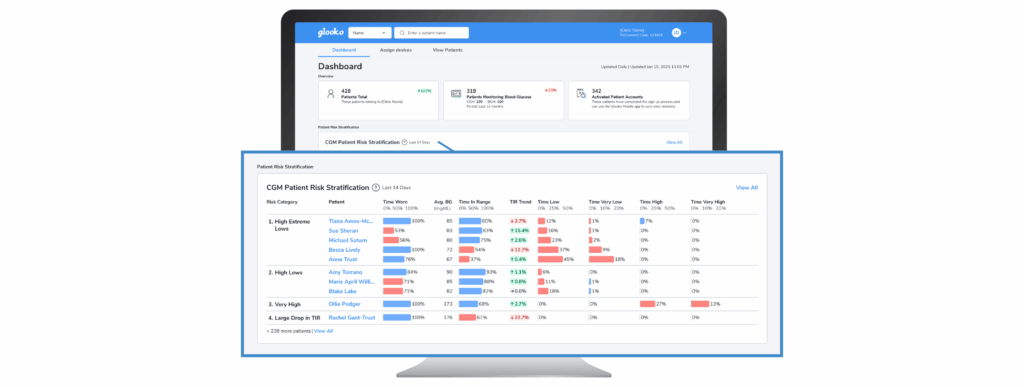
Boost Patient Engagement and Optimize Care
The Engagement Metrics module of the new Glooko clinic dashboard helps healthcare providers spot engagement gaps in their patient population over the past 90 days.
The Patient Account Status section examines the patient population to see if they’ve set-up their Glooko account based on Activated, Invited Pending, Never Invited, and Likely Duplicates. With these key metrics, care teams can quickly see which patients with diabetes haven’t completed the sync to Glooko with their diabetes and health monitoring devices as well as the activation process, allowing for more efficient follow-up and activation.
In the Sync Methods section, care teams can see how patients with diabetes are syncing their data with Glooko. When more health data is synced with Glooko from the cloud, Glooko Mobile App, Transmitter, or Uploader, care teams can make more informed and timely treatment decisions.
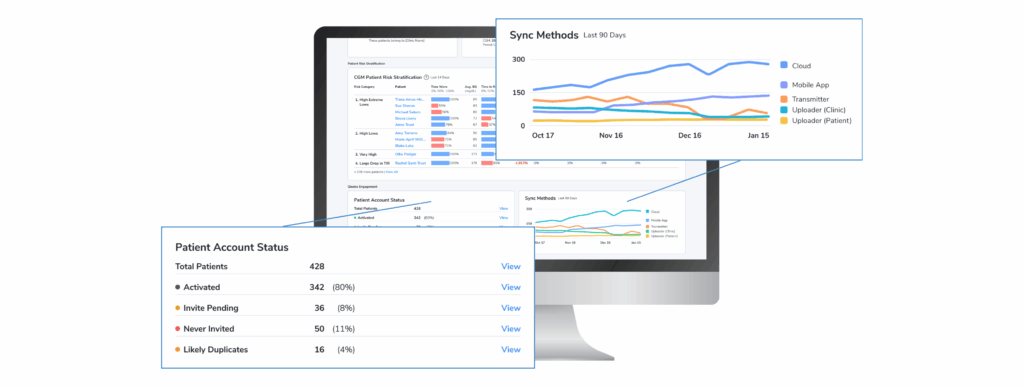
Experience Glooko’s New Clinic Dashboard
Ready to see how the intuitive, new Glooko clinic dashboard can optimize diabetes population health management at your clinic, hospital, or health system? Contact our team for a demo.
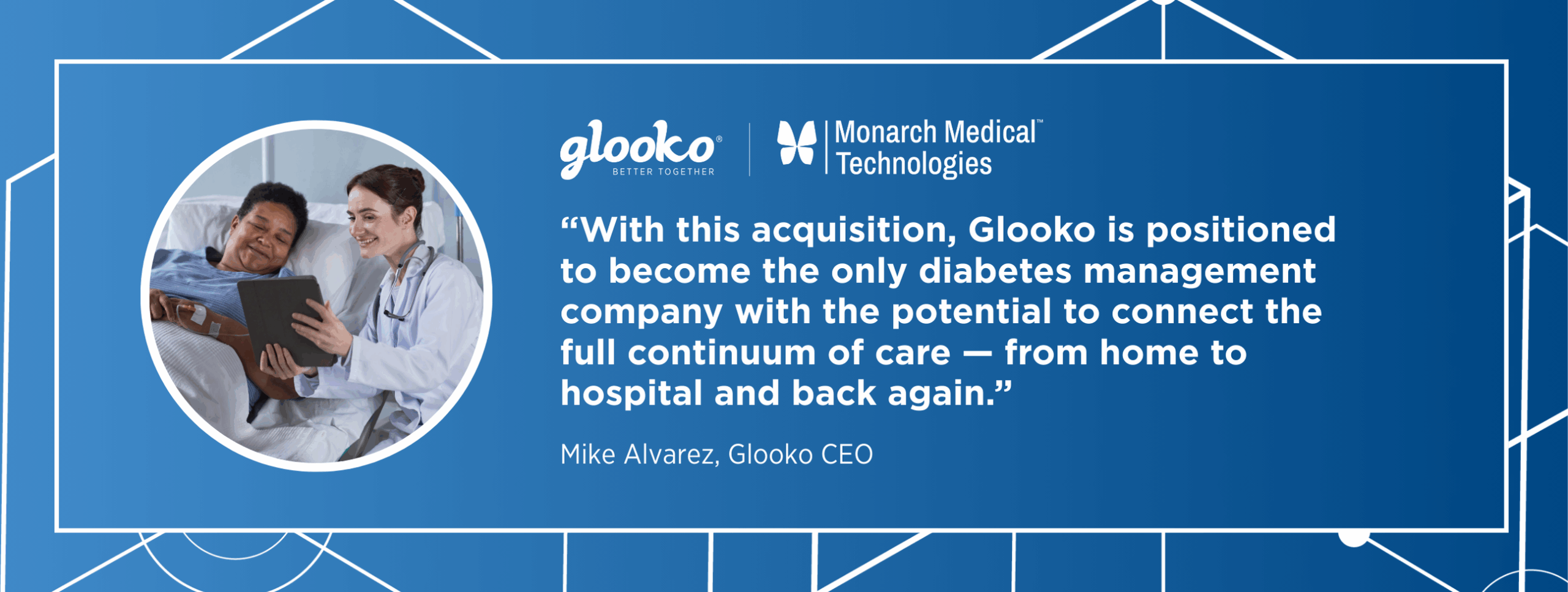
 Today marks an important milestone in our mission to transform diabetes care. I am excited to share that Glooko has acquired Monarch Medical Technologies, creators of the EndoTool® Glucose Management System.
Today marks an important milestone in our mission to transform diabetes care. I am excited to share that Glooko has acquired Monarch Medical Technologies, creators of the EndoTool® Glucose Management System.
With this acquisition, Glooko is positioned to become the only diabetes management company with the potential to connect the full continuum of care — from home to hospital and back again. By bringing together EndoTool’s proven inpatient insulin dosing technology with Glooko’s leading outpatient platform, we aim to create a future where care is seamless, safer, and more supportive for both people living with diabetes and healthcare providers.
For patients, this means fewer disruptions as they move between settings, reduced risk of dangerous glycemic events, and more confidence that their care is connected. For healthcare providers, it means access to tools that simplify complex insulin management, standardize protocols, and free up time to focus on what matters most, which is caring for people.
This step also sets the foundation for Glooko’s future: using data and AI to help clinicians anticipate risks earlier, personalize care at scale, and improve outcomes under value-based models. By aligning advanced technology with clinical guidelines and EHR workflows, we can help hospitals and health systems deliver higher-quality care while lowering costs.
Our mission has always been clear: to simplify diabetes management, strengthen connections across the care team, and improve lives. This acquisition represents an important stride toward that vision.
Together, we are building a future where diabetes care is more connected, proactive, and patient-centered than ever.
EndoTool is developed and marketed by Monarch Medical Technologies, a Glooko Company. EndoTool is an FDA-cleared Class II medical device indicated for inpatient use as described in its Instructions for Use. Glooko’s diabetes management platform and EndoTool are currently independent solutions.
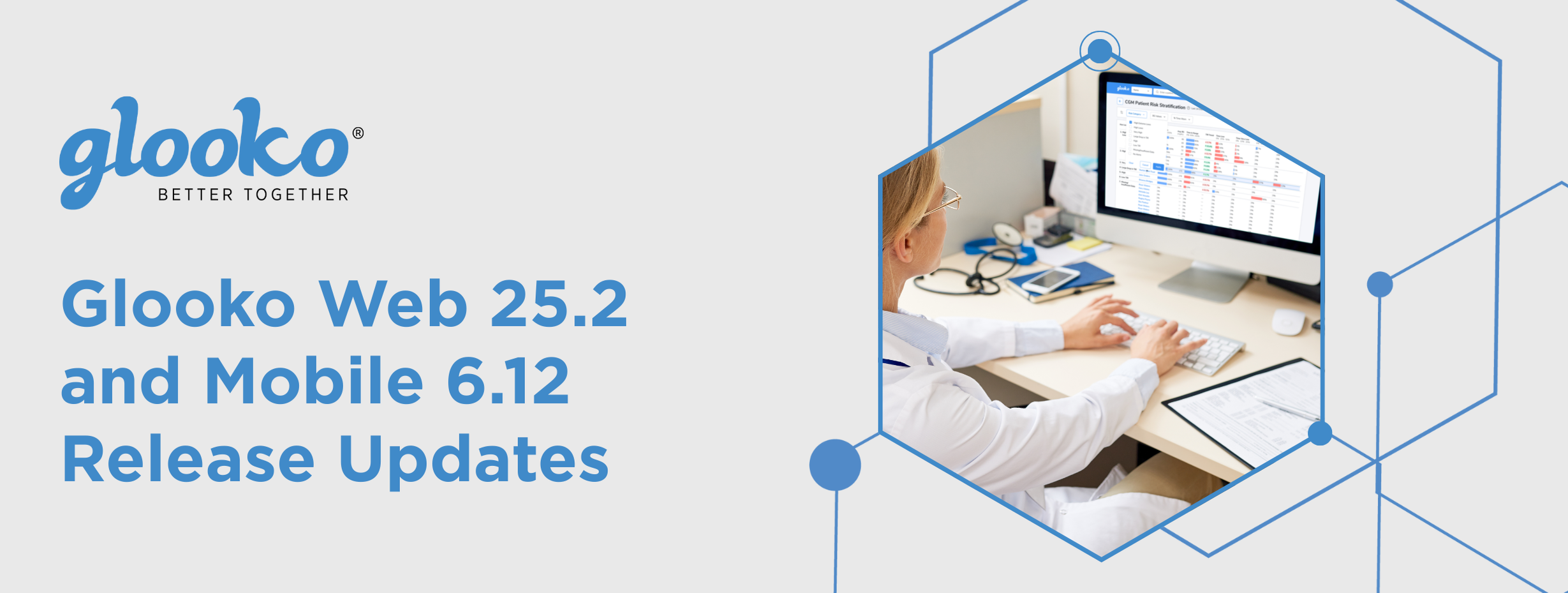
We’re excited to announce the latest updates to Glooko Web 25.2 and Mobile 6.12, which are designed to help healthcare providers and people with diabetes by streamlining workflows, providing a new population management dashboard to triage at-risk patients and review population-level metrics, improving data visualizations, and giving care teams more powerful data from compatible devices to enhance diabetes management.
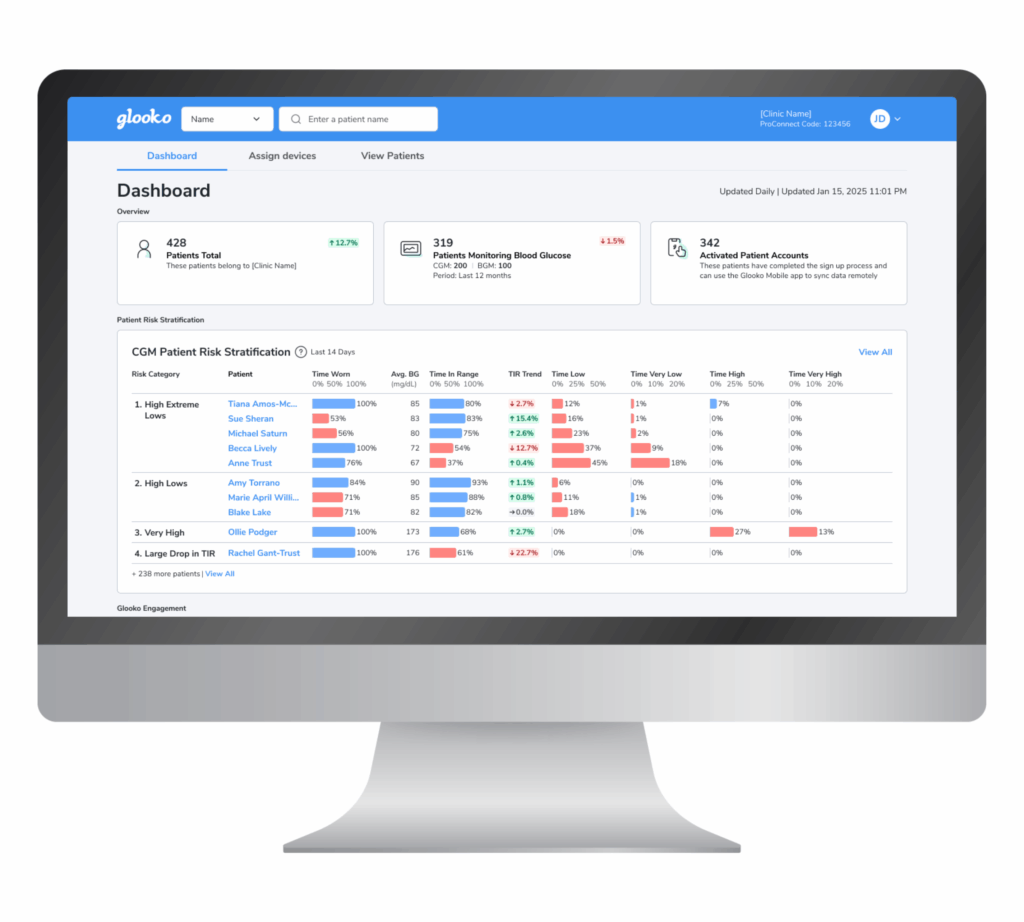 Introducing the New Clinic Dashboard
Introducing the New Clinic Dashboard
In this release, we launched a new clinic dashboard in the U.S. designed to give healthcare professionals at-a-glance insights into population health trends and clinic management metrics. This enhancement makes it easier to interpret complex data and guide decisions and clinic strategy more efficiently across care teams.
Other new clinic dashboard highlights include:
- Population Metrics: This section gives a single, concise, and organized view of the clinic’s total patient population, patients monitoring blood glucose, and those with activated accounts using key engagement and monitoring metrics.
- CGM Patient Risk Stratification: This dashboard, modeled after the Timely Interventions for Diabetes Excellence (TIDE) Dashboard, gives healthcare providers a streamlined view of their patient population, ranked by risk level using key glucose metrics and CGM data only. Care teams can identify risk levels using Time in Range, Time Below Range, and other key CGM indicators to prioritize care.
- Engagement Metrics: This section helps healthcare providers spot engagement gaps within their patient population over the past 90 days and take action to get more patients connected and syncing their devices with Glooko. With more synced health data, care teams can make more informed treatment decisions.
Banner Notification for Missing MRN
Glooko’s connected care platform prioritizes deep EHR integration to bring actionable diabetes data into the systems clinicians already use. To help maintain EHR data integrity and ensure patient matching is seamless, Glooko introduced a clear dismissible banner on the patient dashboard to notify clinicians when a Medical Record Number (MRN) is required but missing.
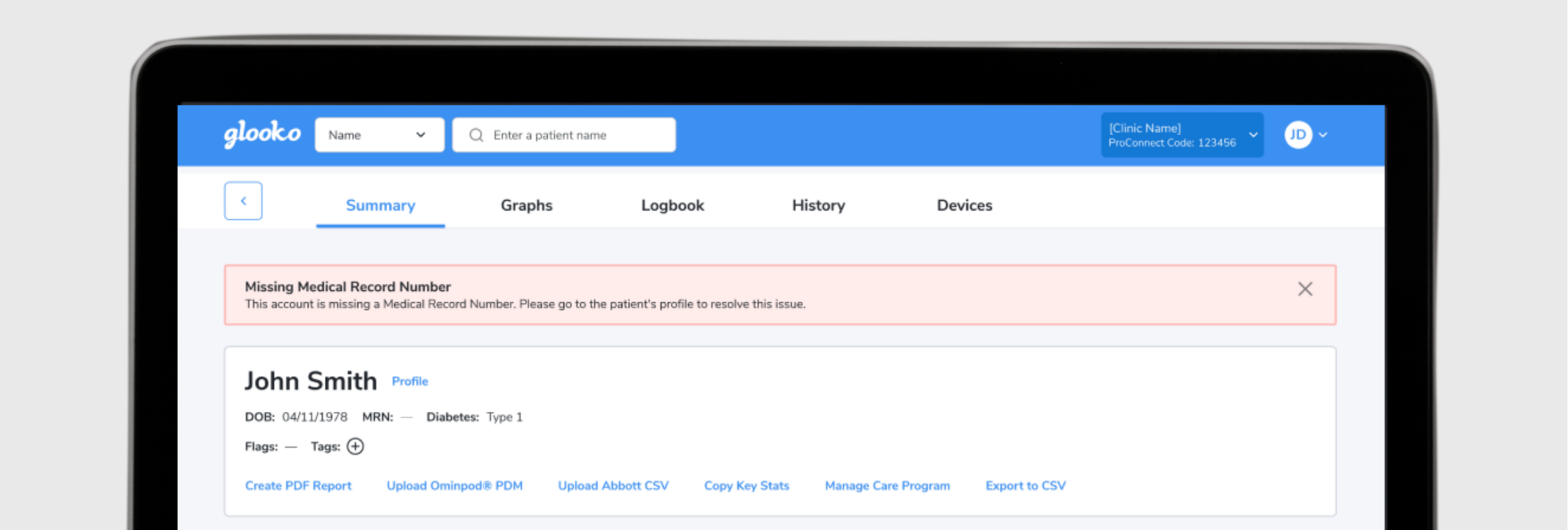
Tandem Basal Profile Switches
A new icon in DayView and WeekView on the Glooko diabetes management platform identifies when a patient changes their Tandem Personal Profile to give better context for insulin delivery.
GLP-1 Dose Enhancements
GLP-1 doses will now be displayed in the Glooko Web and Mobile software with improved messaging and clinical disclaimers. Healthcare professionals will now receive relevant dose range notifications while also providing precise dose information to support better oversight and patient adherence, while patients will see exact GLP-1 doses up to two decimal places as injected.
Device Type Display in PDFs
Glooko will now display controller device types in the PDF Settings Report, helping clinicians more clearly understand where data originated for users of Omnipod® 5 and other select devices. The report will specifically say on a clear device label the upload method (e.g., Android, iOS, Locked Down Controller) used by the patient.
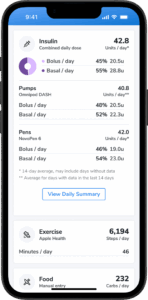 Updated Insulin Statistics Design
Updated Insulin Statistics Design
The Glooko Mobile App’s insulin card has been redesigned to enhance clarity and consistency, particularly benefiting users with insulin pump data. This update aims to improve the understanding of insulin averages and minimize confusion between pump and total insulin values by displaying data in one unified insulin card.
More Information on the Latest Glooko Release
For more detailed information about these new features intended to enhance clinical practices and transform diabetes, be sure to check the full release notes on our Glooko Support page.
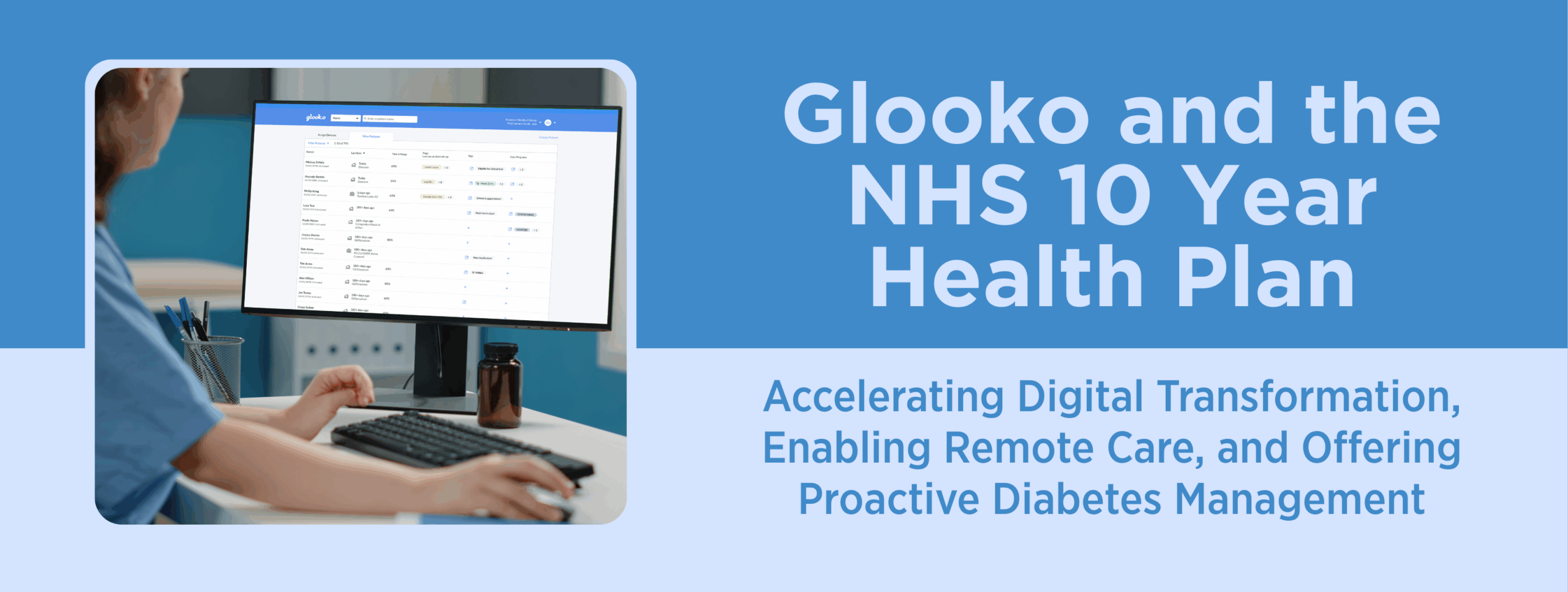
 The NHS’s ambitious “Fit for the Future: 10 Year Health Plan for England” outlines a bold vision for the future of healthcare in the country — one that is digitally advanced, community-focused, and prevention-driven. It’s a plan designed to move healthcare from a reactive, hospital-centric model to a proactive, patient-empowering system utilising cutting-edge technologies. Within this transformative agenda, Glooko’s diabetes management platform stands out as an excellent example of how digital health solutions can directly support these crucial goals.
The NHS’s ambitious “Fit for the Future: 10 Year Health Plan for England” outlines a bold vision for the future of healthcare in the country — one that is digitally advanced, community-focused, and prevention-driven. It’s a plan designed to move healthcare from a reactive, hospital-centric model to a proactive, patient-empowering system utilising cutting-edge technologies. Within this transformative agenda, Glooko’s diabetes management platform stands out as an excellent example of how digital health solutions can directly support these crucial goals.
From Analogue to Digital: Empowering Patients and Streamlining Care
 At the heart of the NHS’s plan is a commitment to becoming “digital by default.” This means harnessing technology to make healthcare more accessible, efficient, and patient-friendly.
At the heart of the NHS’s plan is a commitment to becoming “digital by default.” This means harnessing technology to make healthcare more accessible, efficient, and patient-friendly.
Imagine a world where your health data, whether from your BGM, CGM, insulin pen, or activity tracker, is all in one place. That’s what Glooko offers through its integrations with more than 200 diabetes and health monitoring devices, including wearables, a future standard in the NHS by 2035. By centralising this vital information, it empowers people living with diabetes to take a more active role in managing their diabetes and saves them time by not having to juggle multiple apps or manually record readings.
For healthcare professionals, Glooko centralises health data from their patients into a single platform, helping create the “single, secure and authoritative account of their data” that the NHS aims for. To help reduce time-wasting administrative tasks, streamline workflows, and allow clinicians to have more efficient appointments focused on providing quality care, Glooko is expanding its capability to sync with electronic health record (EHR) systems across England and the rest of Europe. When all the relevant data is at their fingertips and seamlessly flowing between clinical records and the Glooko platform, everyone on the care team, including diabetologists, diabetes specialist nurses, registered dietitians, and general practitioners, can make more informed clinical decisions using our diabetes technology.
With our commitment to safeguarding confidential personal information and handling patient data properly, our diabetes management platform and our company’s practices meet the NHS’s data security standards outlined in the Data Security and Protection Toolkit. We align with the NHS’s requirements for all organisations with access to their patient data and systems.
From Hospital to Community: Enabling Remote Monitoring and Personalised Care
The NHS plan emphasises shifting care away from hospitals and into local communities and even patients’ homes. Glooko is instrumental in making this a reality for diabetes care with its remote patient monitoring capabilities.
This innovative feature of our diabetes software for healthcare providers means fewer trips to the hospital for routine check-ups and more proactive management of diabetes from the comfort of a patient’s home. This not only improves convenience for people living with diabetes but also helps to alleviate pressure on acute hospital services and supports the development of community-based models like “Neighbourhood Health Centres.”
The Glooko connected care platform offers powerful population health analytics. This allows hospitals to view trends and manage their entire patient population more effectively, aligning with the NHS’s goal of preventing illness and managing long-term conditions on a larger scale. The detailed insights provided by Glooko’s data can also support the creation and monitoring of highly personalised care plans, moving closer to the NHS’s goal of offering personal health budgets and tailored support for complex needs like diabetes.
From Sickness to Prevention: Proactive Management and Improved Outcomes

A core tenet of the NHS’s 10 Year Health Plan is a strong focus on prevention and early intervention.
By providing continuous diabetes and related health data and insights, Glooko helps healthcare providers identify potential issues and risks before they escalate. This allows for proactive intervention, which can significantly reduce the likelihood of diabetes-related complications, improving long-term health for patients.
And Glooko isn’t just about data; it’s about demonstrable results. The diabetes management platform has a track record of improving clinical outcomes, including reduced HbA1c levels. These outcomes directly align with the NHS’s aspirations for better health for the population, reduced demand on acute services, and a more sustainable healthcare system.
A Healthier Future for People with Diabetes
We want the NHS 10 Year Health Plan to deliver real improvements for people with diabetes and their care teams. Glooko is more than a diabetes management tool; we’re a strategic partner committed to helping the NHS deliver better care for all patients regardless of wherever they live and whatever they earn.
By accelerating digital transformation, enabling care at home, and championing proactive diabetes management, Glooko is helping build a more efficient, patient-centered, and digitally advanced healthcare system.
With innovative solutions and preferred vendors like Glooko, the NHS is well-equipped to meet the challenges and opportunities ahead as they usher in the future of healthcare in England.
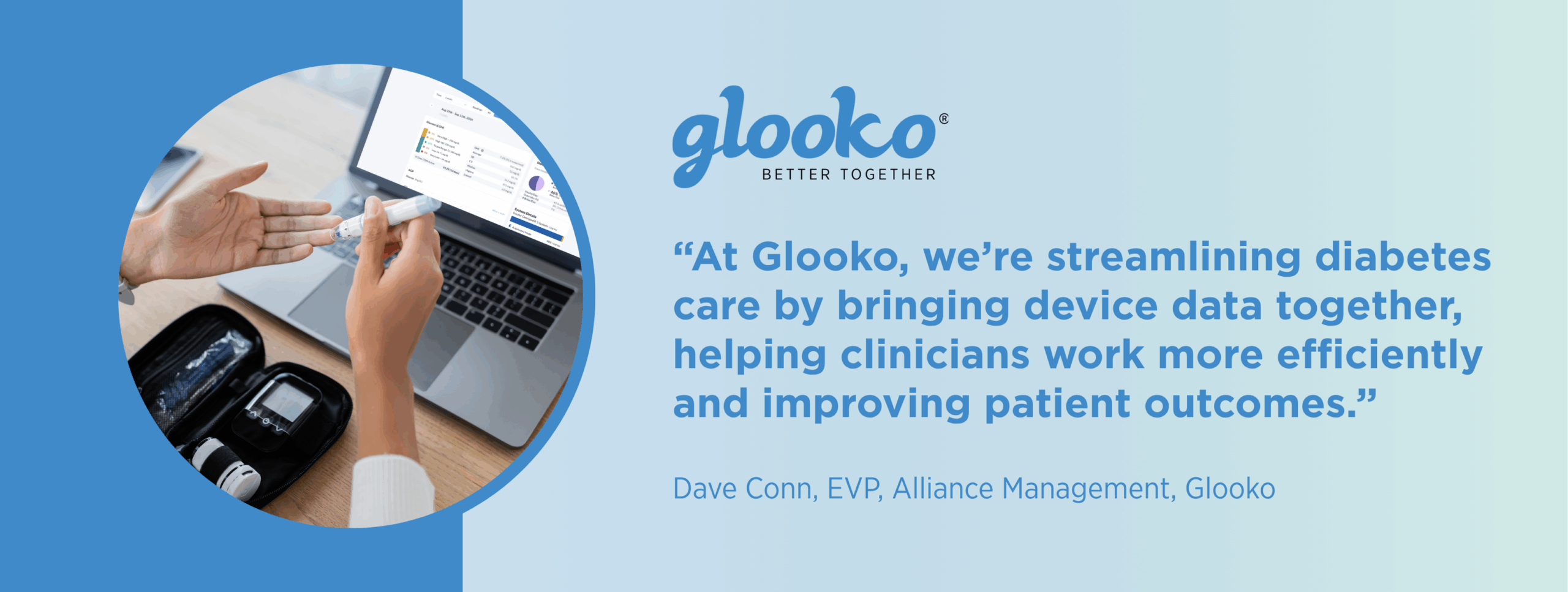
 Managing diabetes care has become increasingly complex for clinics, hospitals, and health systems. With a growing number of people living with diabetes relying on multiple devices — glucose meters, continuous glucose monitors (CGMs), insulin pumps, and wearables — healthcare providers face the challenge of piecing together critical data from siloed systems. This fragmentation not only consumes valuable time, but hinders patient care.
Managing diabetes care has become increasingly complex for clinics, hospitals, and health systems. With a growing number of people living with diabetes relying on multiple devices — glucose meters, continuous glucose monitors (CGMs), insulin pumps, and wearables — healthcare providers face the challenge of piecing together critical data from siloed systems. This fragmentation not only consumes valuable time, but hinders patient care.
At Glooko, we know device integration is the key to solving these challenges and transforming diabetes management. As a market leader in device compatibility, EHR integration, and interoperability, Glooko increases efficiency of clinical workflows by streamlining administrative tasks, enhances patient engagement, and helps deliver better outcomes.
The Challenges of Fragmented Diabetes Management
For healthcare providers, piecing together data from various devices and platforms and apps can feel like an endless puzzle. Without device integrations, clinics and health systems face:
- Disconnected Data: Patient data is scattered across incompatible platforms and apps, making it difficult to understand a patient’s holistic health.
- Inefficient Workflows: Healthcare providers must spend time manually entering or retrieving data instead of focusing their time and expertise to support their patients in achieving better health.
- Limited Patient Engagement: Patients often struggle to track their progress with so many different tools and apps, becoming overwhelmed and losing hope in their ability to make meaningful change.
These challenges contribute to missed opportunities for timely interventions that drive better health outcomes.
How Glooko’s Compatibility Brings Clarity to Diabetes Care
Glooko simplifies diabetes management by integrating data from more than 200 diabetes and health monitoring devices — including Abbott’s FreeStyle Libre CGMs in the U.S. — into a single, user-friendly platform.
Here’s how Glooko’s device compatibility transforms care:
- Data Integration and Interoperability: Glooko consolidates glucose levels, insulin usage, and lifestyle behaviors such as diet and physical activity, giving healthcare providers a holistic view of patient health. Care teams can easily access patient data from a centralized platform.
- Remote Monitoring Capabilities: Healthcare providers can track patient trends and progress between visits, ensuring timely adjustments to care plans and reducing unnecessary appointments and emergency room visits.

Not all devices are available in every country where Glooko is available. The product images are for illustrative purposes only. Not actual patient data. The sensor housing, FreeStyle, Libre, and related brand marks are marks of Abbott and used with permission. Important Safety Information: For full FreeStyle Libre systems safety information, please visit https://www.freestyle.abbott/us-en/safety-information.html.
The Many Benefits of Integration for Clinics, Hospitals, and Health Systems
Our industry-leading device compatibility benefits clinics, hospitals, and health systems by streamlining workflows and improving decision-making through a comprehensive view of patient data. With greater efficiency, care teams can focus more on patient care and expand their reach to serve more individuals in need.
- Streamlined Workflows: Staff spend less time on administrative tasks and more time on what they do best: educating and providing care to their patients.
- Improved Decision-Making: A comprehensive view of patient data allows care teams to create more personalized and effective treatment plans.
- Expanded Clinical Footprint: With more time, clinicians can help more patients in need.
To enable more meaningful data insights, Glooko also seamlessly integrates the health data from their patients’ diabetes and health monitoring devices directly into leading EHR systems, eliminating manual uploads and platform switching and reducing administrative burden.
The Key Benefits of Device Integrations for People Living with Diabetes
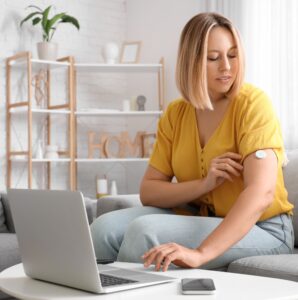
Glooko’s device integrations benefit people living with diabetes by simplifying their experience and empowering self-management through centralized data, reducing app overload and supporting informed health decisions.
- Simplified Experience: With integrated data, patients no longer need to juggle multiple apps and passwords, or manually report their glucose levels to their provider.
- Empowered Self-Management: Patients can log meals, exercise, and medications directly in the Glooko app, helping them understand how their choices impact their health.
Proven Results Backed by Global Expertise
Glooko has more than a decade of experience integrating diabetes and health monitoring devices worldwide, supporting millions of people living with diabetes. Glooko’s connected care platform, backed by real-world evidence, delivers the reliability, scalability, and insights clinics, hospitals, and health systems need to stay ahead in diabetes care, setting a new standard.
Simplify Diabetes Care with Glooko
The complexity of diabetes management doesn’t have to hold your clinic, hospital, or health system back. By choosing Glooko, you can eliminate data fragmentation, enhance patient care, and create a more efficient, streamlined experience for healthcare providers and people living with diabetes.
Schedule a personalized demo of our digital health platform today and see how your patients’ health data can be integrated directly into your EHR system.
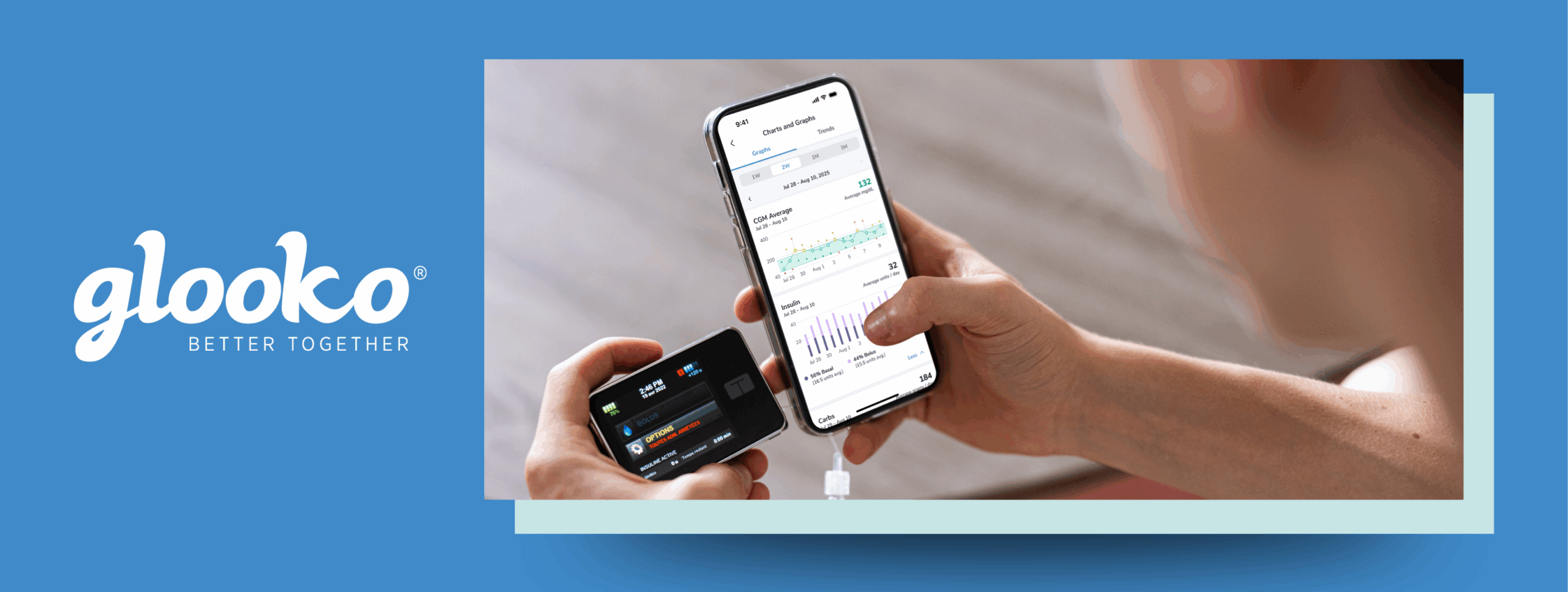
As a leader in diabetes management, Glooko offers an intelligent connected care platform that allow people with diabetes and their healthcare providers to review, analyze, and evaluate data from many different types of diabetes devices, including blood glucose meters (BGM), continuous glucose monitoring (CGM) systems, insulin pumps, smart pens, and fitness apps.
With Glooko’s digital health solution allowing users to view and analyze CGM and insulin data in one place, we have the ability to work with hybrid closed loop systems, a technology — often known as an artificial pancreas — that automates many of the daily decisions of people living with Type 1 diabetes who use an insulin pump and CGM that communicate with each other.
Innovative hybrid closed loop systems take readings from an individual’s CGM and use an algorithm to automatically tell the insulin pump how much insulin to deliver to keep blood glucose levels stable around the clock.
How Glooko integrates with hybrid closed loop systems
Our digital health platform, used by over 10,000 clinics in more than 30 countries, syncs via the cloud with leading diabetes CGMs and insulin pumps in hybrid closed loop systems to automatically present data around glucose levels, basal rates and more to patients and their care teams via graphically-oriented reports that can help recognize trends, so they can take action to improve their health outcomes.
The hybrid closed loop systems that currently sync with Glooko include:
- mylife Loop (CamAPS FX and Ypsomed)
- Tandem Control-IQ
- Insulet Omnipod 5
- Dana CamAPS® FX
Depending on the brands of the insulin pump and CGM, different methods of syncing via cloud are required to view data in Glooko from hybrid closed loop systems.
|
|
|
Like any great technology, people living with diabetes using a closed loop system still must check to ensure it is working and must count carbohydrates to give the system the correct bolusing data before food consumption. This is where the Glooko Mobile App’s food tracker can be used to track nutrition by searching the food database, using voice capture, or scanning a barcode (in select countries).
Benefits of using hybrid closed loop systems with Glooko
There are many benefits of using hybrid closed loop systems alongside Glooko for patients, including:
- Major changes in treatment that reduce daily burdens and mental stress
- More time with glucose levels in range with less effort
- The ability to visualize blood glucose and insulin data in clear graphs that make it easier to understand automatic boluses and basal rates
There are also many benefits of using hybrid closed loop systems alongside Glooko for care teams, including:
- An increased monitoring of patients with diabetes who are using closed loop systems
- Strengthening their connection with their patients
- Better management of fluctuations in patients’ glucose levels
- Easier interpretation of patient data around basal rate, automatic vs. manual mode and automatic boluses
The future of hybrid closed loop systems
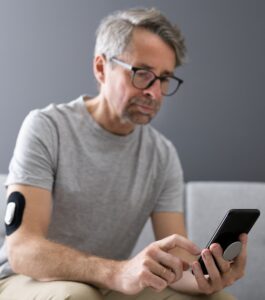
Hybrid closed loop systems in diabetes care are advancing toward more automation, intelligence, and accessibility. These systems are on a path toward becoming fully closed loop systems that will make managing diabetes more automated, adaptive, and accessible, allowing users to focus less on their condition and more on living life.
As the systems evolve, so will Glooko. With the regular introduction of new hybrid closed loop systems, Glooko will continue to partner with leading device manufacturers to integrate their platforms with our digital health solution.
For more information about using a hybrid closed loop system, consult with your healthcare team and explore resources from the Breakthrough T1D, Diabetes UK, and NHS England.
